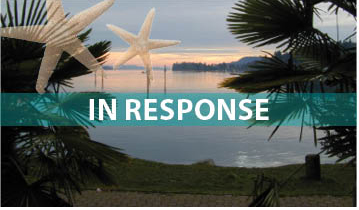By JENNIFER MARGISON
On behalf of the Friends of the Gulf Islands Society (FOTGIS), I am responding to Jason Mogus’ Jan. 15 opinion piece, “Our community needs empathy, not attacks, to solve its problems.”
While I agree with his call for empathy, I believe his definition of community is regrettably myopic, excluding as he does groups like FOTGIS and others that he cited. Ironically, he undermines his own appeal by attacking these groups as part of an alleged “anti-housing movement.”
FOTGIS has a clear housing position, which is publicly available on our website as a “key issue.” We fully acknowledge the housing challenges in the Trust Area and support affordable housing. However, we believe solutions must be tailored to each island’s unique circumstances, including water resources, ecosystem health and carrying capacity.
We advocate for true affordable housing — projects funded by government and non-profits, not left to the volatile and profit-driven market. As anyone who has recently undertaken construction knows, the costs of labour and materials are prohibitive. The private market cannot realistically provide affordable housing for the islands’ workforces, which often face seasonal, low-wage or inconsistent employment.
At the same time, we maintain that housing must be carefully located to preserve the natural environment we all depend on. Housing development should reflect unbiased data and minimize environmental impacts.
Mr. Mogus suggests that increasing housing supply through density additions — such as those that were proposed under Salt Spring Island’s Bylaw 530 — will address affordability. However, evidence clearly suggests otherwise. When demand is as high as it is on the islands, adding supply alone will not reduce rents or ensure more rental units. Unregulated density increases could also place unsustainable pressure on freshwater resources and other fragile systems. As a button handed out by the Islands Trust reminds us, “On an island, you must be more careful.”
We all share a desire for diverse, inclusive communities — economically, demographically and culturally. However, achieving this requires constructive dialogue and thoughtful planning, not polarization. Mr. Mogus’ article unfortunately promotes division by making unsubstantiated accusations against small, volunteer groups like ours. While he claims to champion environmental stewardship, he offers no clear vision of how much growth he deems acceptable or how it would co-exist with the islands’ limited natural resources.
The islands are finite spaces with real limitations — “rocks surrounded by salt water,” as we often remind ourselves. Recognizing these constraints is not anti-housing; it is responsible planning. Demonizing those who call for careful consideration of these issues does nothing to advance solutions for either the housing or environmental crises we face.
These are difficult problems, and solving them requires collaboration, not conflict. I encourage Mr. Mogus to follow his own advice and engage with others — including groups like ours — constructively, without resorting to attacks or mischaracterizations. I invite all readers to view our website for accurate information on our organization: friendsofthegulfislands.ca.
The writer is a Galiano Island resident and president of Friends of the Gulf Islands Society.

